Emma Lovell’s teen killer set to learn fate over Boxing Day murder in North Lakes home invasion
The teen responsible for the murder of North Lakes mother Emma Lovell in a home invasion ignored a car parked in her driveway and decided to enter the house regardless, the Supreme Court has heard.
Police & Courts
Don't miss out on the headlines from Police & Courts. Followed categories will be added to My News.
The Crown prosecutor involved in the sentencing of a teen over the murder of North Lakes mother Emma Lovell says the boy was “somewhat gleeful” in the moments before her death at discovering the door to the family’s home was unlocked.
It comes as Emma’s family have described the impact of her loss in the Supreme Court during submissions for the sentence of the teen who killed her.
The teenager will be sentenced at a later date, with Justice Tom Sullivan adjourning the hearing to a date to be set, when he will sentence the teen.
He will sentence based on whether he determines the crime was both an act of violence and “particularly heinous”.
The teen pleaded guilty to murdering the mother-of-two and stabbing her husband Lee in the back during a home invasion at North Lakes on Boxing Day, 2022.
HOW IT PLAYED OUT IN COURT

Teen’s heinous act before murder
Crown prosecutor David Nardone said the judge should find the murder of Emma Lovell was particularly heinous, which would allow him to sentence the teen to a period of more than ten years.
A juvenile offender can be sentenced to above the maximum of ten years for murder if the crime is found to be particularly heinous.
He said the teen ignored a car parked in the driveway and decided to enter the house regardless – despite the likelihood that someone would be home.
“(The teen) checked the status of the front door to the Lovells’ home. He does so stealthily. He’s somewhat gleeful of the success of finding … an unlocked door,” Mr Nardone said.
“The offence happens in the dead of night, just before midnight.
“He ignored the suggestion of the presence of the car and the lateness of the night … and returns to the door in company.”
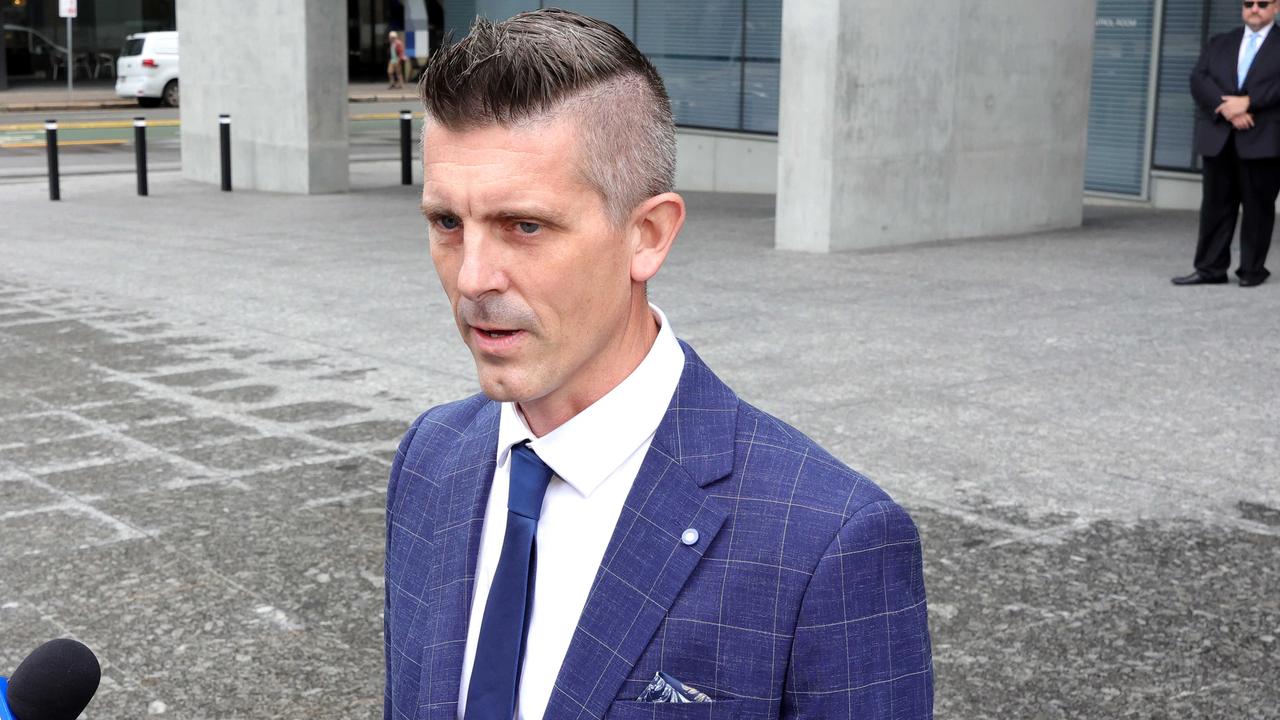
He said further evidence of the teen’s understanding of the risk that someone might be home is the appearance of a knife in his hand at that time.
Referring to footage taken from the Lovells’ CCTV cameras, Mr Nardone said the knife that could be seen in the teen’s hand was indication that he’d made “a positive decision about how that risk might be dealt with”.
Mr Nardone said when the teen and another youth were confronted by the couple, he “ultimately puts his desire to escape above the health and safety of the Lovells”.
“He uses the knife, he uses it repeatedly, stabbing Mr Lovell twice and Mrs Lovell once,” he said.
“The evidence infers that the use of the knife is with such force that the blade snapped from the handle.”
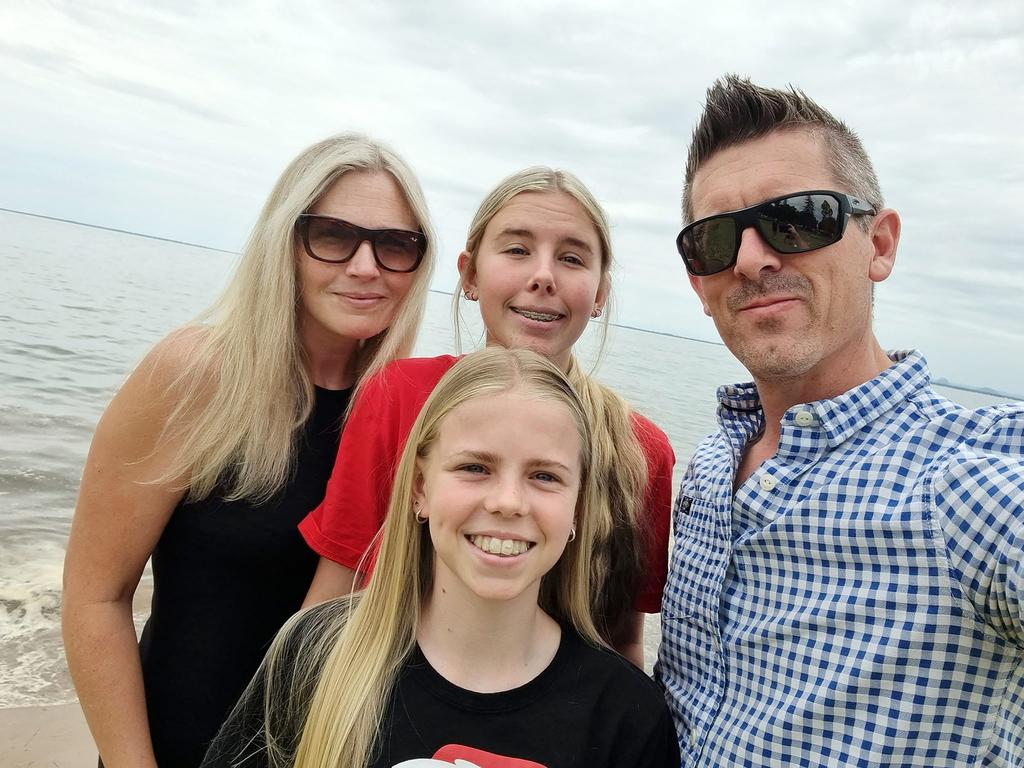
He said the struggle captured by the house cameras was so frantic, they were unable to determine a chronology of exactly what happened.
“At some point … there is an evolution in the use of violence by (the teen),” Mr Nardone said.
“The kicking of Mr Lovell (in the face) cannot be said to have been done to effect escape.
“Mr Lovell is on the ground (and is) no longer a threat to (the teen).”
Mr Nardone said only then, after kicking a man on the ground, does the teen flee.
“Leaving a man injured, a mother with a mortal wound and children confronted with that scene,” he said.
“At some point (his) conduct becomes more than just escape.
“It provides your honour insight to a level of moral culpability involved in his conduct.”
CCTV captured Emma Lovell’s murder
Horrific footage of Emma Lovell’s murder has been played in court, showing how she and her husband fought frantically to push two teens from their home after they broke in while the family slept.
Footage captured by a security camera above the Lovells’ front door showed one teen try the front door of their North Lakes home before moving off to get his friend.
They returned moments later, pushing the front door open and leaning inside while they appeared to be listening for movement inside the house.
The front door was left open as the two teens entered.
A minute or so later, Emma and Lee suddenly appeared in a frantic and violent struggle with the two teens.
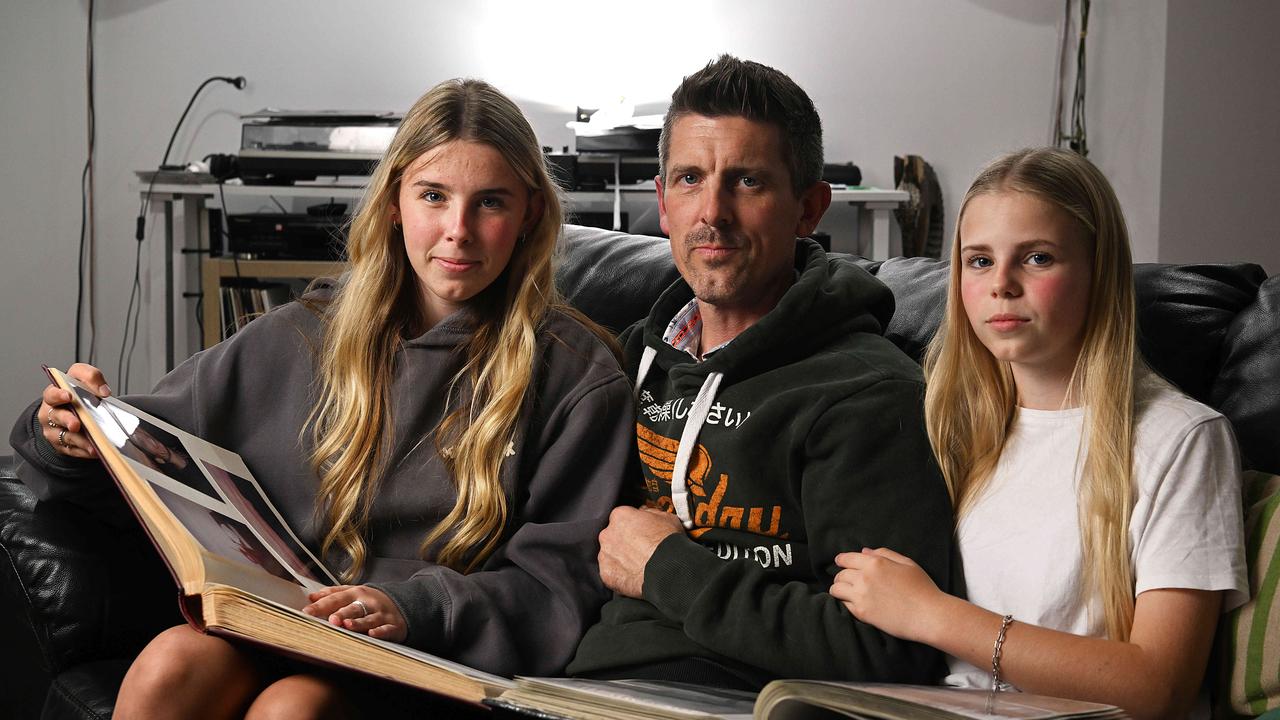
Lee, shirtless, and Emma in her pyjamas, wrestled with the intruders, the violent scuffle moving to the driveway.
The fight continued until Emma clutched her chest and dropped to her knees. Lee could be seen on the ground near her as the teens fled down the street.
Lee, his daughters and their supporters remained in the court to watch the chilling footage but left when a separate audio recording was played.
The audio recording captured Emma’s screams and Lee’s shouts as they attempted to defend themselves.
He stabbed Emma, 41, in the chest as she tried to defend her family and her home. She died hours later in hospital after paramedics performed emergency open heart surgery at the scene.
Her husband Lee was also stabbed in the back and kicked in the face by the teen.
Teen’s shocking criminal history
Crown prosecutor David Nardone told the Supreme Court that if the teen had committed his crime four months later, he would have been prosecuted as an adult.
He said the teen had a lengthy criminal history that began when he was aged 15 and included 16 home invasions.
Two of those involved occasions where people were at home when he broke in.
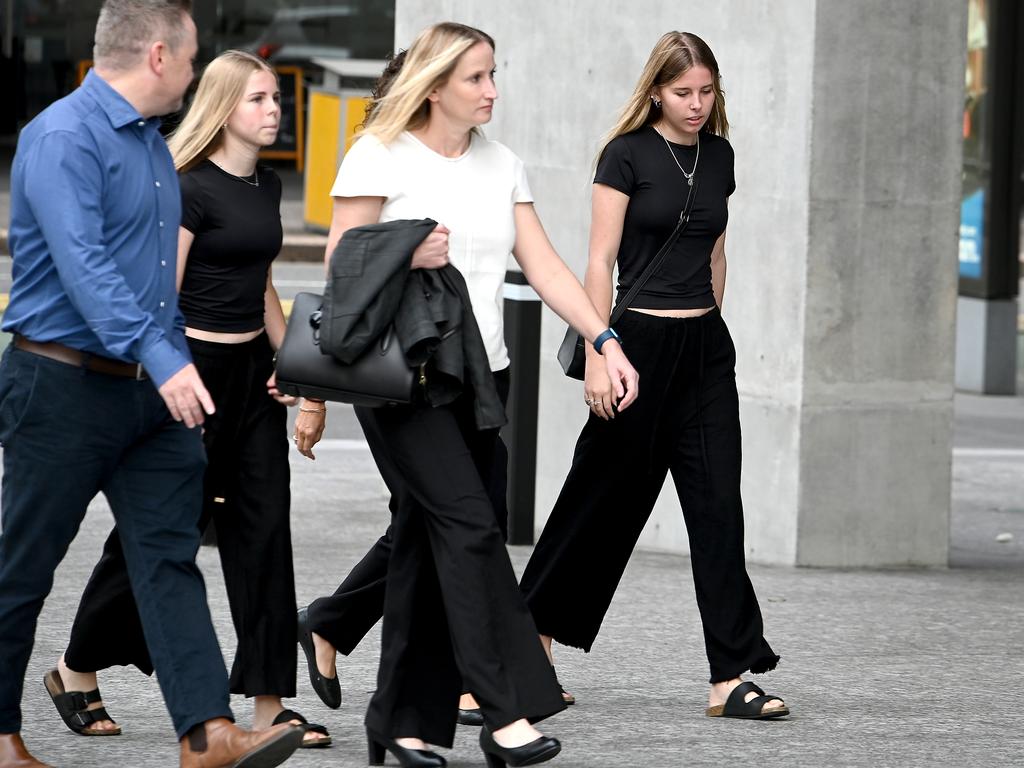
He said the teen had been given various probation orders but had not “put much effort, if any at all” into following them.
“In the face of those probation orders, one which was active at the time (of Emma’s murder), they did not act in any way to weigh on (his) mind to reign in his offending,” Mr Nardone said.
The court heard the teen was engaged in a court ordered program at the time of the murder that was specific to break and enter offending. The program, which involved hour-long cognitive therapy sessions, was designed to prevent reoffending.
He had been handed four separate probation orders, including one that began on February 2022 and was due to end on January 10, 2023.
Defence barrister Scott Lynch told the court the teen had a “chaotic” upbringing where he was exposed to violence and alcohol abuse.
He said the teen was forced to leave his mother’s house at the age of 10 and move in with other family members far from his siblings and half siblings.
“He had been exposed to violence at the hands of his natural father,” he said, adding there was also violence at the hands of other men in his life.
“He has now had nothing to do with his father for many, many years.”
He said he was one of 12 children at the home of the relative but would return to stay with his mother on school holidays.
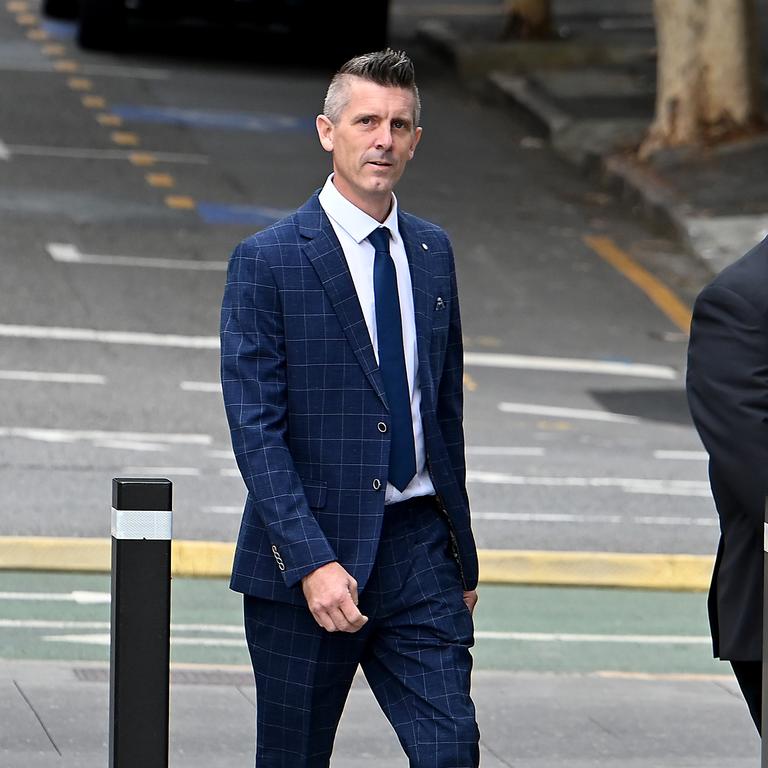
Mr Lynch said the teen’s mother had conceded she was not capable of looking after him.
”His mother would infrequently call. She would never visit, nor would he visit her,” he said.
Mr Lynch said the teen’s grandmother was the only stable influence in his life and she would call him every day, “such was their connection”.
He told the court the teen was devastated when his grandmother died when he was aged 14.
The court heard his offending started soon after.
Mr Lynch said the teen returned to his mother’s home after the death of his grandmother, but that arrangement did not last long.
“Nothing much had changed in that time. There was still alcohol, cannabis and violence,” he said.
He said he was soon sent to live with another family.
Following that, he began drinking alcohol himself and was also exposed to cannabis.
Mr Lynch said the teen couldn’t cope after the passing of his grandmother as she was one of two people that stayed by his side, the other he refers to as a brother, who was not biological but the son of his stepfather.
“They were the same age. By virtue of their circumstances they did almost everything together and had similar interests,” Mr Lynch said.
“He came home to find him hanging in the backyard, it was he who found him. He was only young himself and it was he who alerted others of what he had found.”
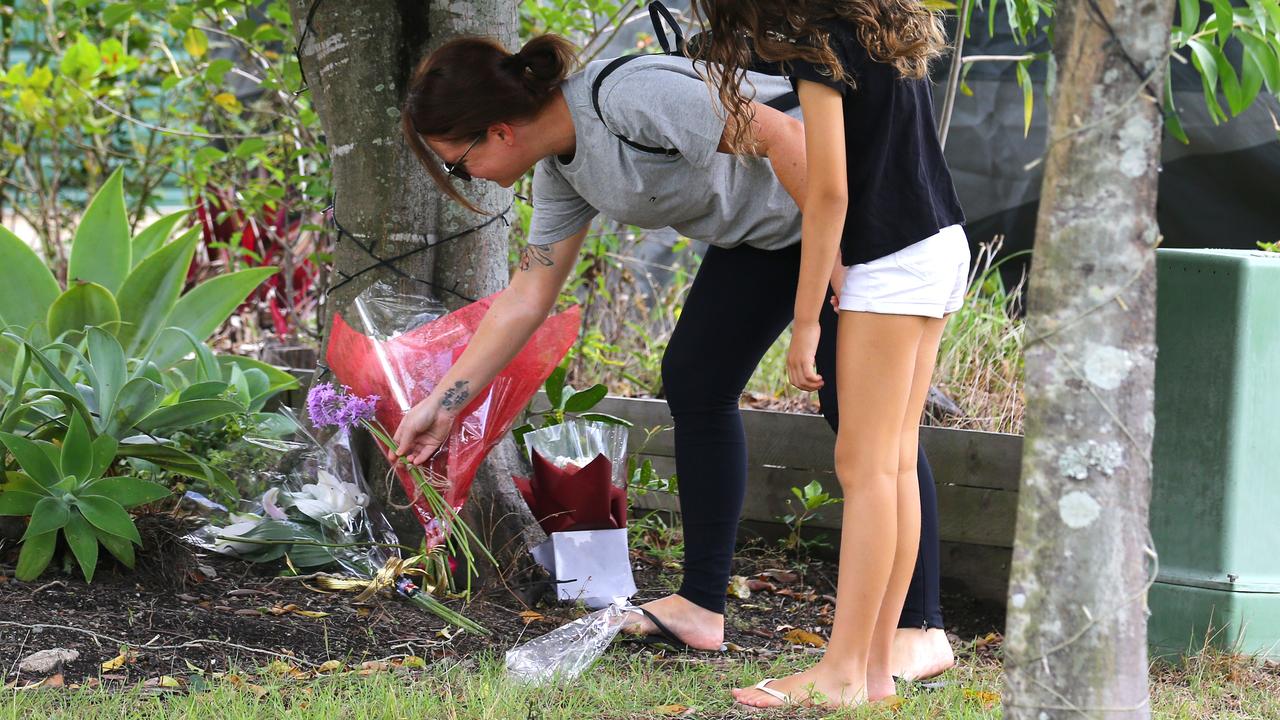
Mr Lynch said he was devastated by a result of that.
He said the teen returned back home after both their passing but there was no proper parenting and little support for him – with probation only being once a week for 45 minutes.
“Probation wasn’t there to provide nurturing, they were after all an office that operated during office hours, and he was at their whim,” he said.
“They didn’t provide meals, they didn’t provide care.
“His real nurturing and love came from a person being his grandmother, who wasn’t even present and in his life for those years, she would just ring him.”
Mr Lynch said the passing of his brother in March 2022 led to self destruction, homelessness, a transient existence and other drugs.
“By Christmas, he had been really on a bender, for at least three days,” he said.
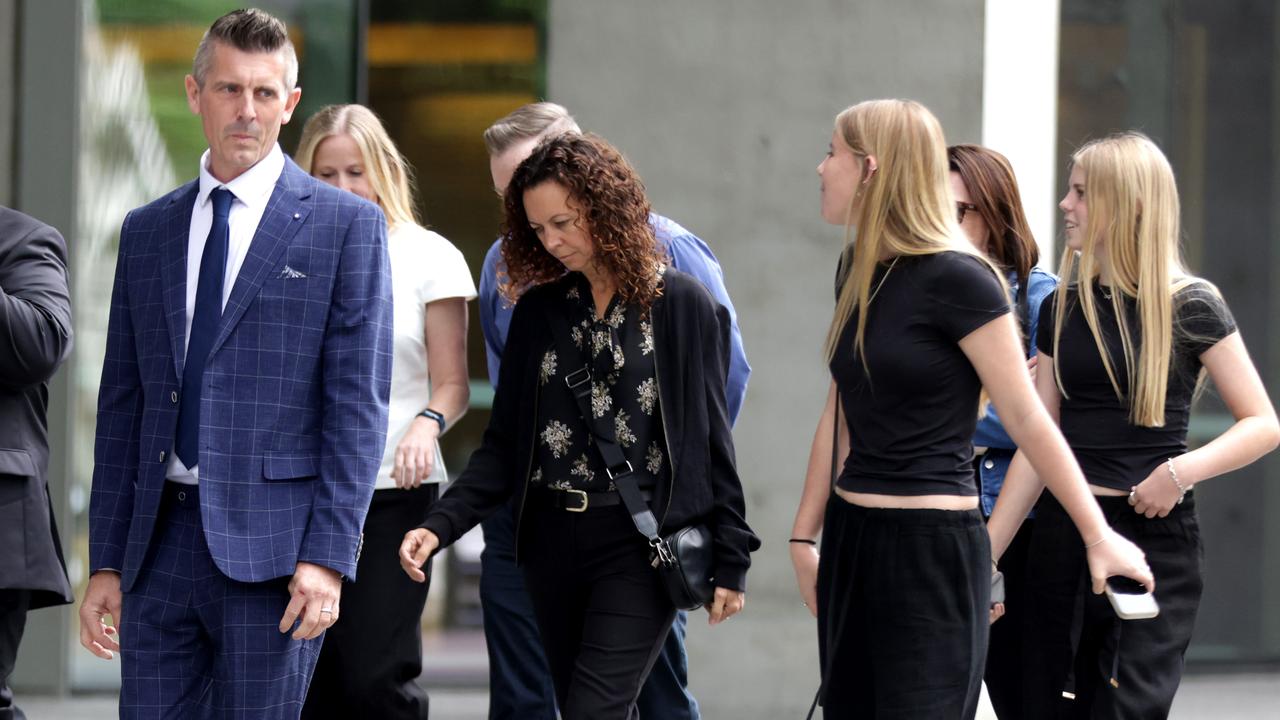
Mr Lynch said he wasn’t a person who would sit down and talk about his feelings and still isn’t. He said he had been taken through the victim impact statements but all the teen could say was he was he was “saddened by it all” and he had “too much feelings”.
He said the teen felt extraordinarily sorry for the offending and he regrets every part of that day and evening.
“This was the first time he was armed, there was never any violence involved before,” he said.
“There was not an intention to kill. It did occur in the depth of the night, but it can equally be said that in the dead of night when most people are sleeping it is less likely you will confront a person.
“In fact it is equally said he didn’t endeavour to confront any person, didn’t endeavour to wake the residents.
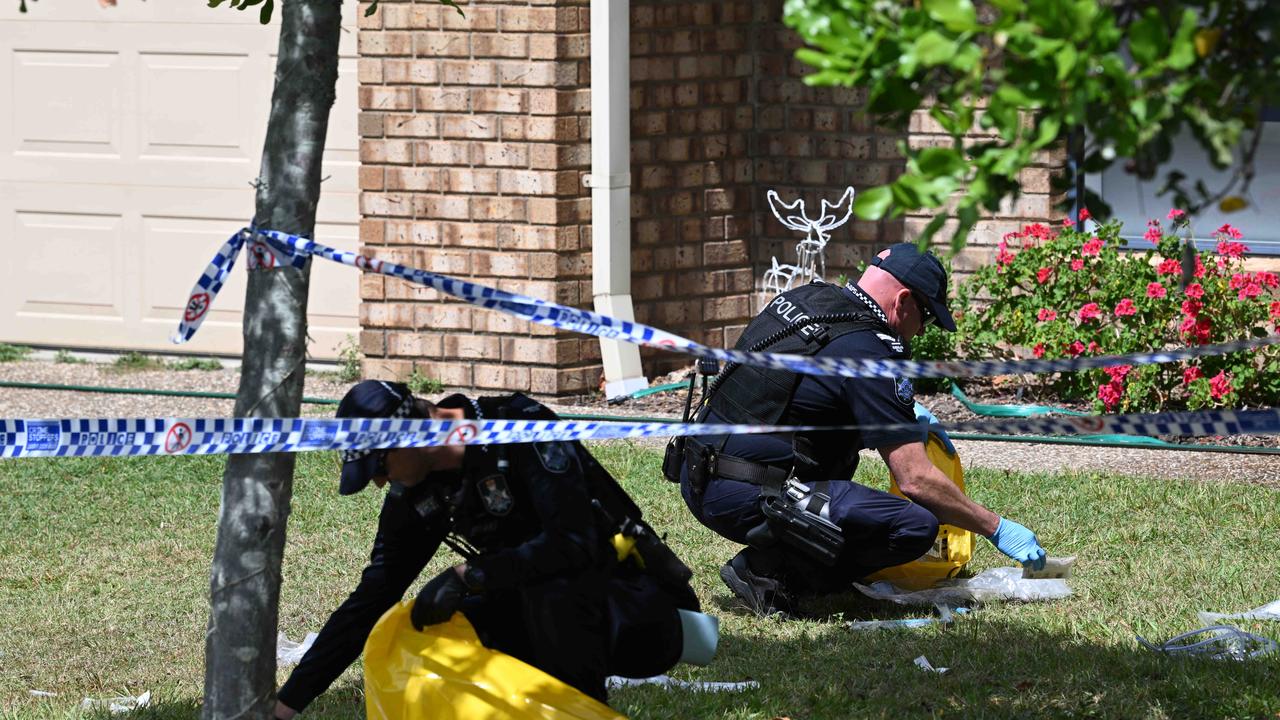
Mr Lynch said the knife was not used in the house, it occurred outside and in the context of a struggle.
“In terms of the contention that the force used was sufficient to break the knife, your honour saw in that footage, the dynamics which are not dissimilar to the dynamic in any struggle,” he said.
“Body parts are moving, not just one person moving, all persons are moving.”
Mr Nardone said late on the evening of Boxing Day, 2022, the teen and his co-accused broke into the home where the Lovells and their two children slept.
He said they were woken by the barking of their dogs to find two youths inside their house.
”At the time of entry, and at all times after, (the teen) was armed with a knife,” Mr Nardone said.
He said Lee and Emma confronted the teen and his co-accused and pushed them out of the house.
In an attempt to escape, the teen used the knife he was carrying to stab both Emma and Lee.
Lee was stabbed twice in the back while Emma was stabbed in the heart, the blade piercing her left ventricle.
”(The teen) kicked Mr Lovell twice in the head before making good his escape,” Mr Nardone said.
The court heard such was the force of the attack that the handle broke from the blade.
Mr Nardone said the teen was quickly found hiding in a nearby house, blood on his white shorts. The blade of the knife was found outside the Lovells’ home, which the handle was found on the couch of the house where the teen was discovered hiding.
He said the teen’s fingerprints were found inside the Lovell home, including on the door frame of Lee and Emma’s bedroom.
Justice Tom Sullivan is expected to reserve his decision after hearing from all parties.
Mr Lovell arrived to court with his daughters Scarlett and Kassie, as well as friends.
Lee Lovell on harrowing audio
Emma Lovell’s husband, Lee Lovell, said outside court he had previously heard the audio played in court but couldn’t go through it again.
While submissions were being made, a video of the altercation occurring was played and was followed by audio of the incident being played.
Mr Lovell and his daughters sat through the video but walked out before the audio began.
“It’s something I hadn’t really seen before, it was quite hard seeing, especially seeing myself fighting with the guys coming out of the house,” he said.
“That was really challenging.
“I know there was some audio that was played in court as well, I listened to that and couldn’t go through it again.”
Mr Lovell said being in the courtroom as submissions were heard was difficult.
“It was pretty challenging to hear some of the stuff and watch the video but I suppose coming out of there now I feel pretty positive to a certain extent that we might get more of an outcome to what we were hoping for,” he said.
“Nothing is ever going to be good enough but I would like to see the defendant get more than 10 years.”
Mr Lovell said he was glad the defendant went for a guilty plea as he didn’t want to put his children through a trial.
“There’s still one more defendant to go after this,” he said.
“As for this one, I hope justice will prevail and we can move on.”
Mr Lovell said the government was reluctant to do anything about youth crime but in the lead up to the election they were saying what they could to keep them in power.
He said his daughters were doing the best without their mother.
“They seem like they are doing OK, school and year 11 has been quite challenging for our eldest daughter,” he said.
“I am trying to get through each day, each week.”



